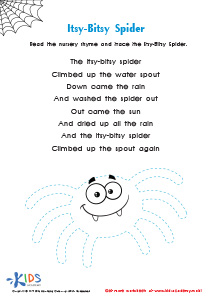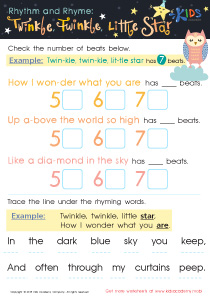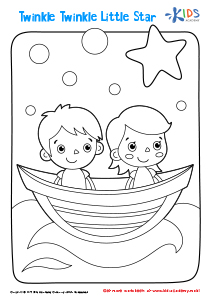Nursery Rhymes Worksheets for Ages 5-7
13 filtered results
-
From - To
Discover our engaging Nursery Rhymes Worksheets designed specifically for children ages 5-7! These creative activities help young learners develop essential literacy and language skills through fun and familiar nursery rhymes. Our worksheets include activities such as fill-in-the-blanks, rhyming word matching, and reading comprehension exercises. Each resource encourages critical thinking, boosts vocabulary, and stimulates a love for reading. Perfect for at-home or classroom use, our worksheets are easy to print and can be incorporated into your daily lessons. Let your child explore the delightful world of nursery rhymes while enhancing their educational journey with our vibrant, interactive materials!
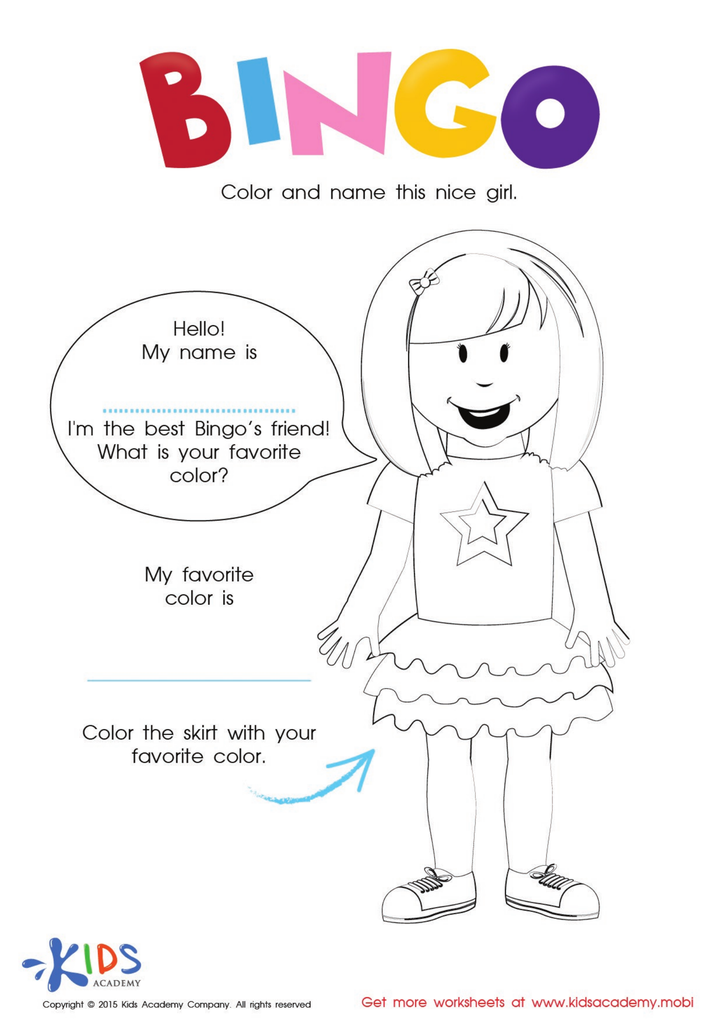

The Bingo Song: Coloring The Girl Worksheet
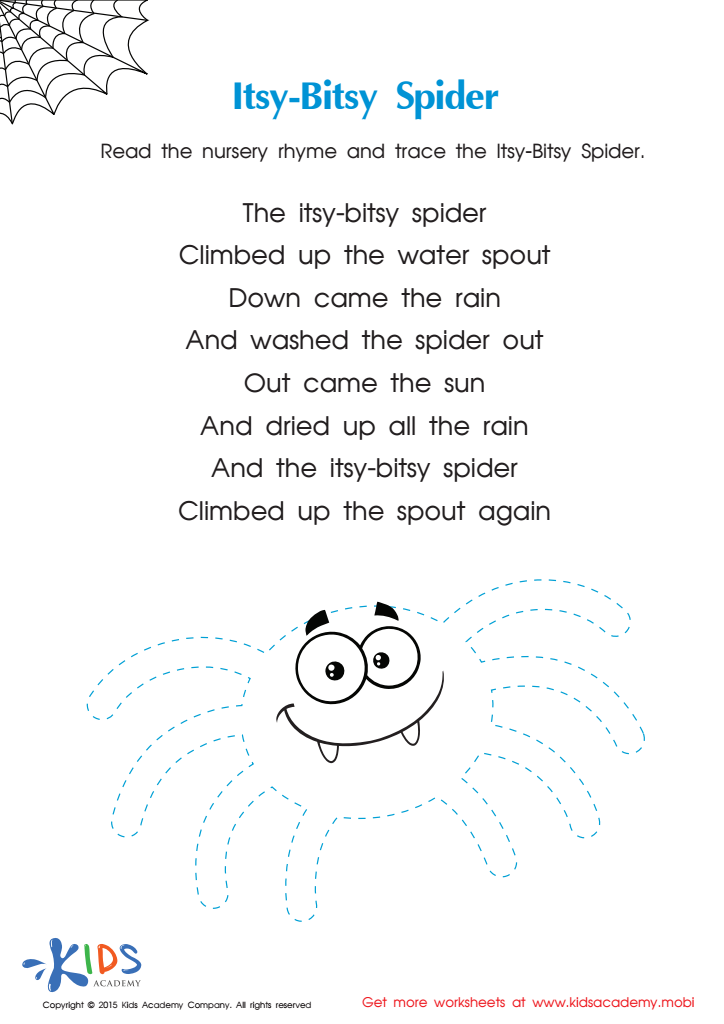

Itsy Bitsy Spider Nursery Rhyme PDF Worksheet
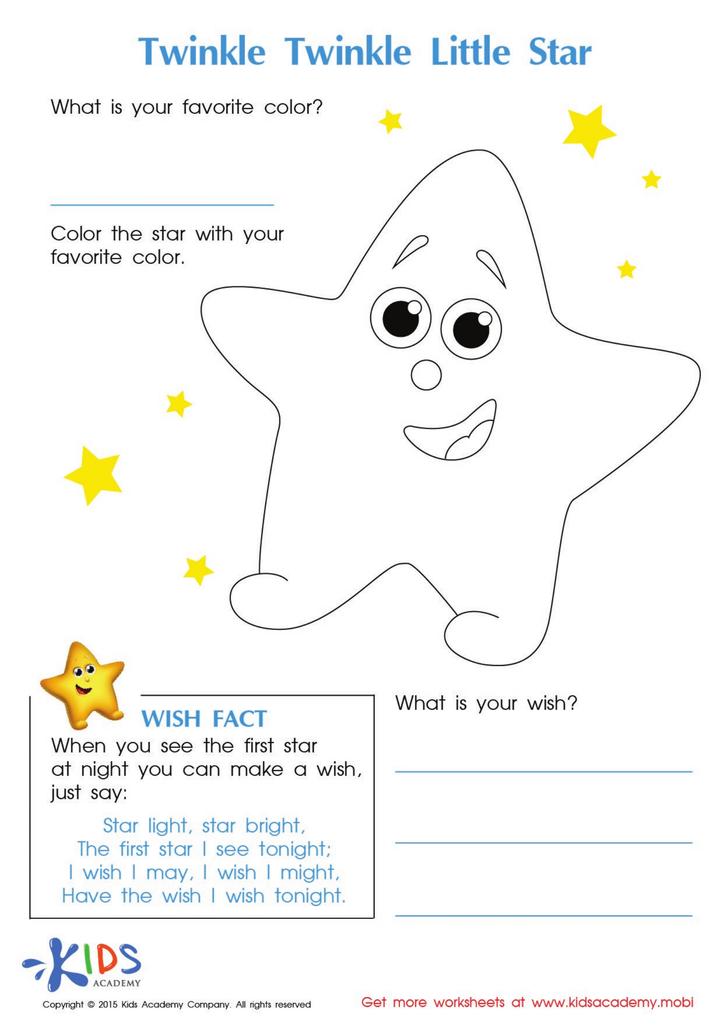

Twinkle Little Star Coloring Worksheet
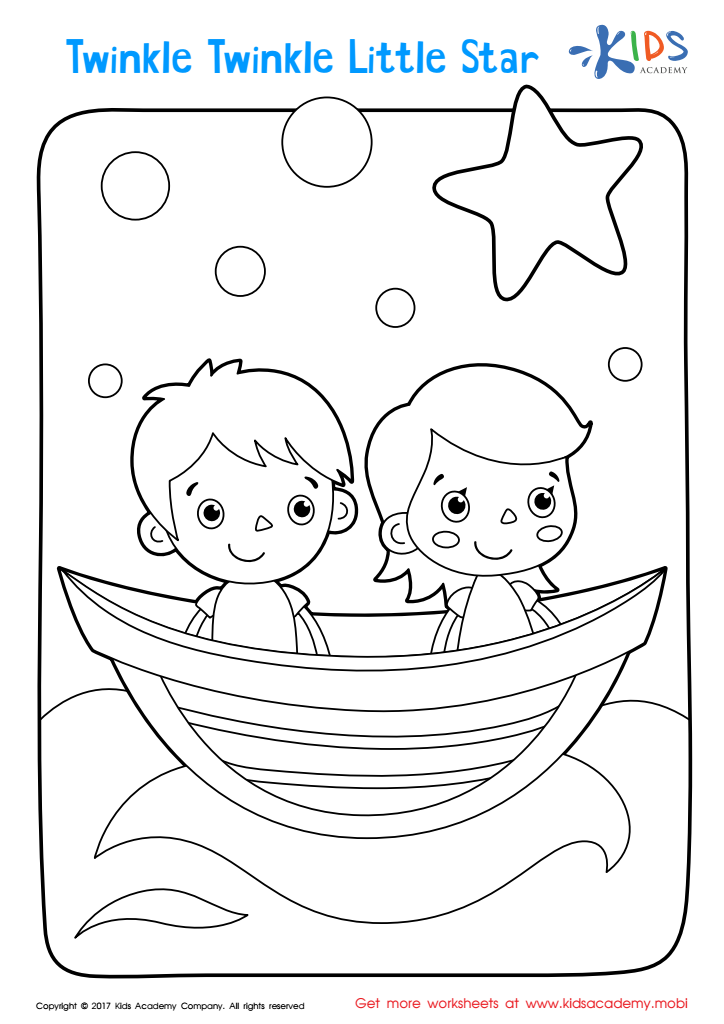

Twinkle Twinkle Little Star Coloring Page
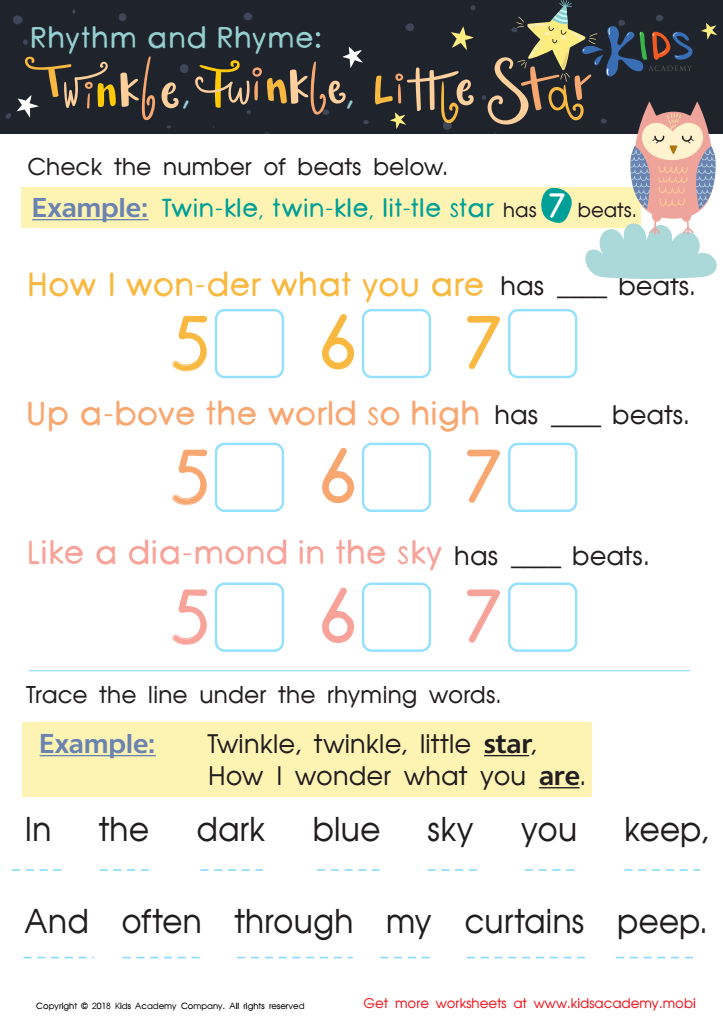

Rhythm and Rhyme: Twinkle, Twinkle, Little Star Worksheet


The Five Little Monkeys Nursery Rhyme Worksheet
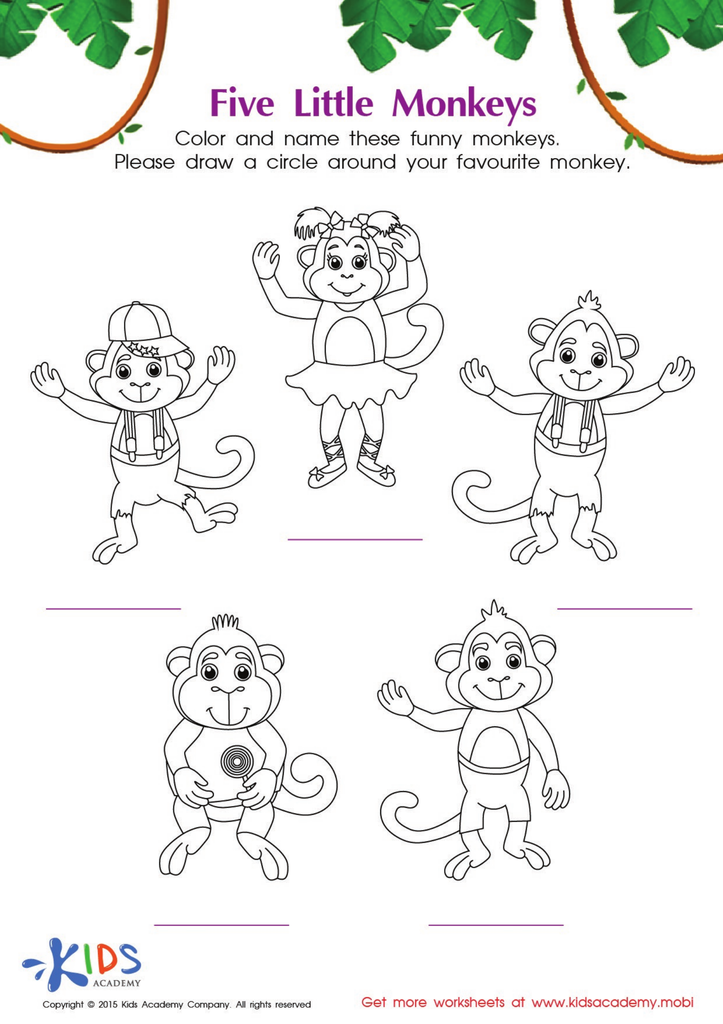

The Five Little Monkeys Coloring Worksheet
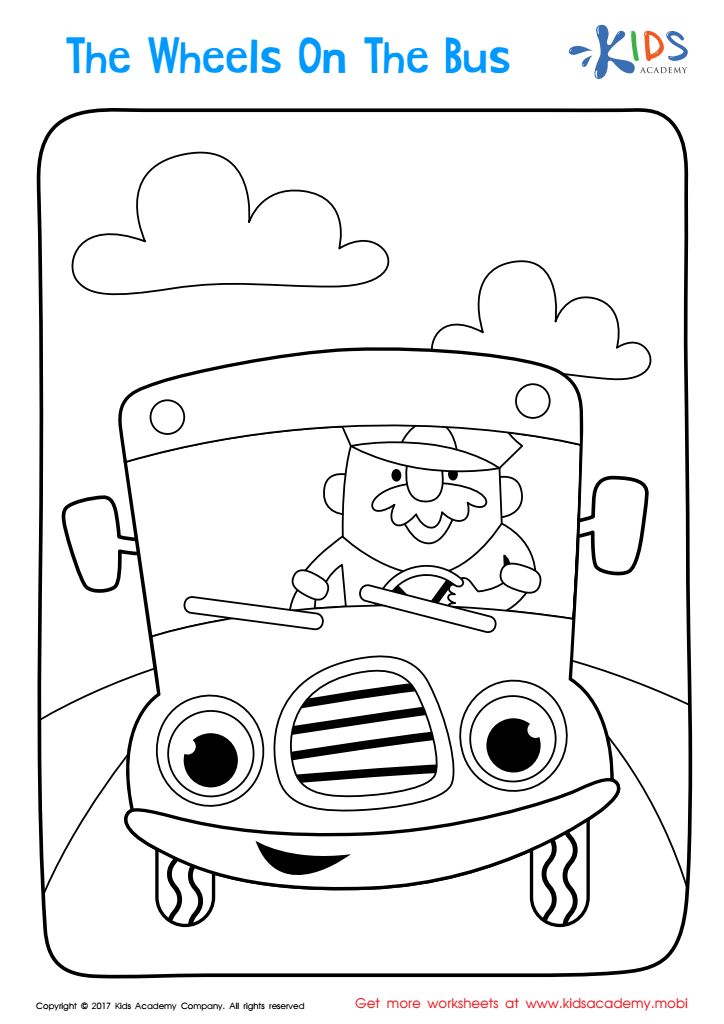

The Wheels on the Bus Coloring Page
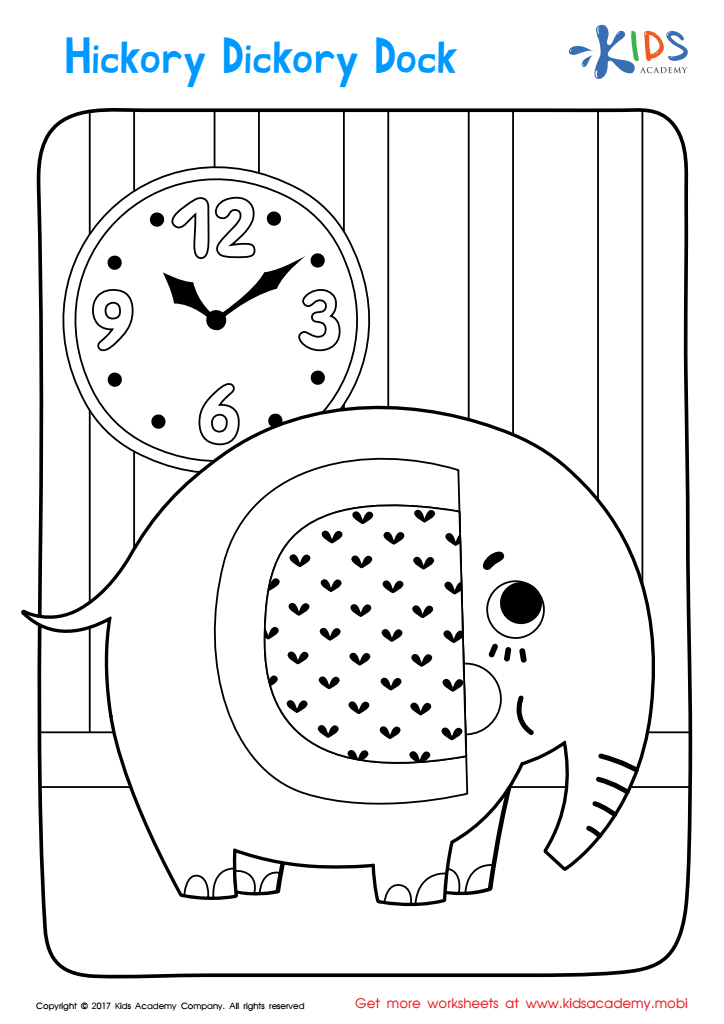

Hickory Dickory Dock Coloring Page
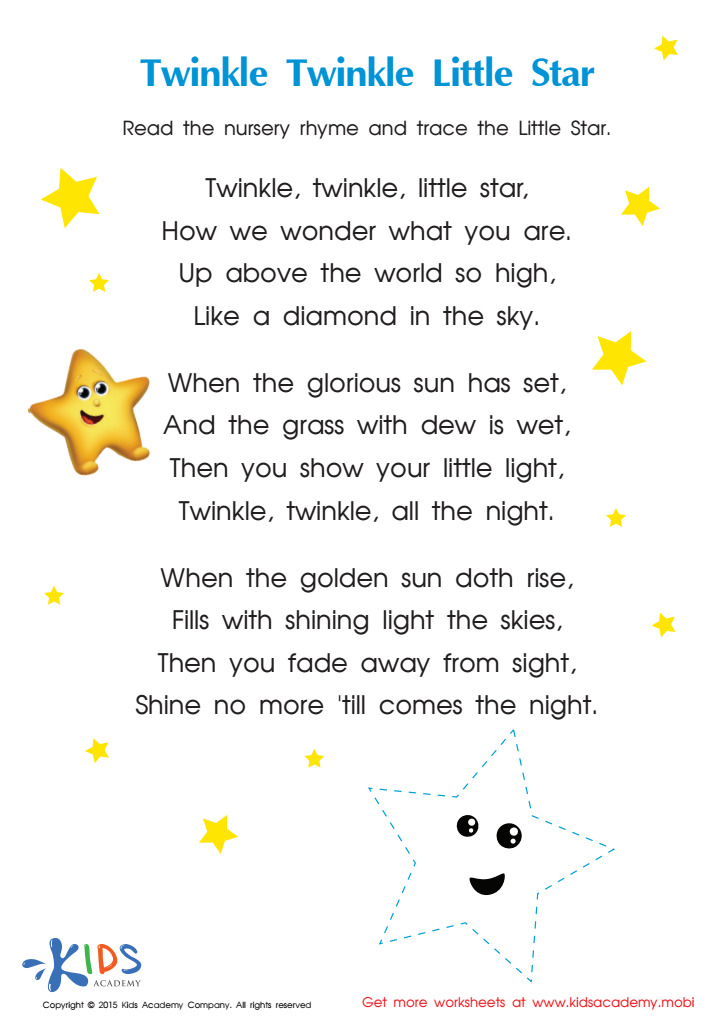

Nursery Rhymes: Twinkle Little Star Worksheet
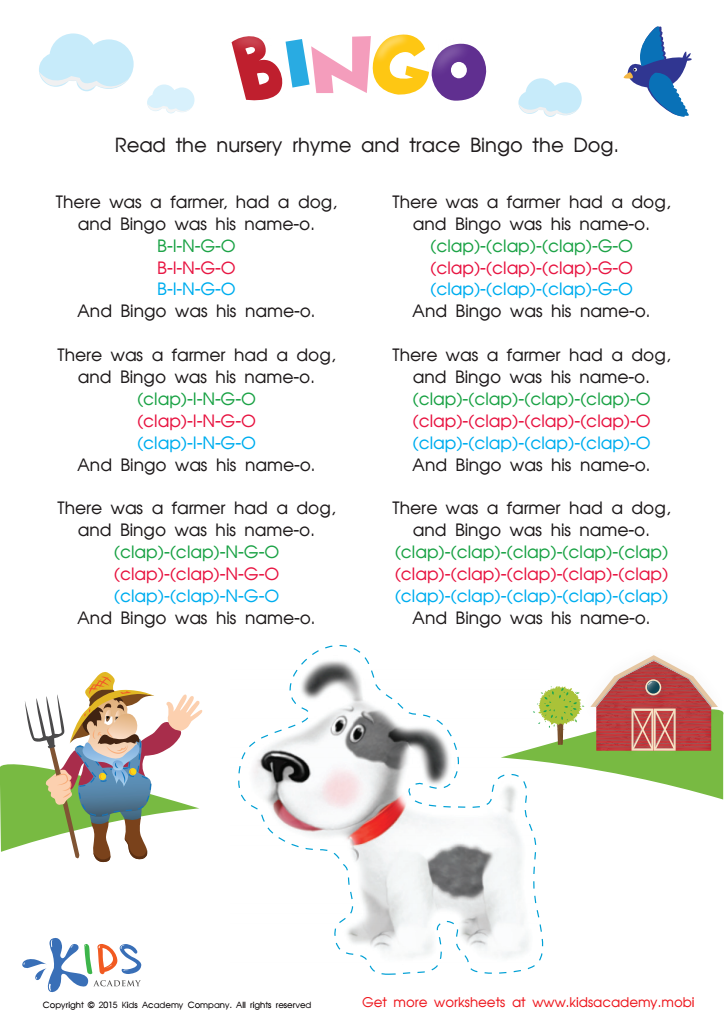

Nursery Rhymes: The Bingo Song Worksheet
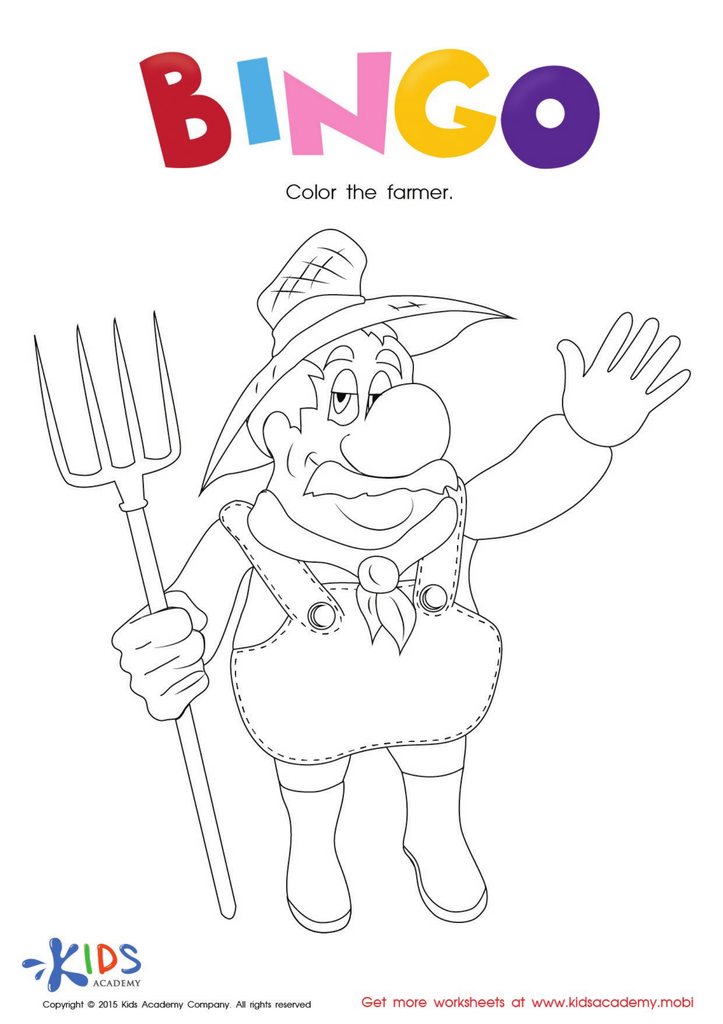

The Bingo Song: Coloring The Farmer Worksheet
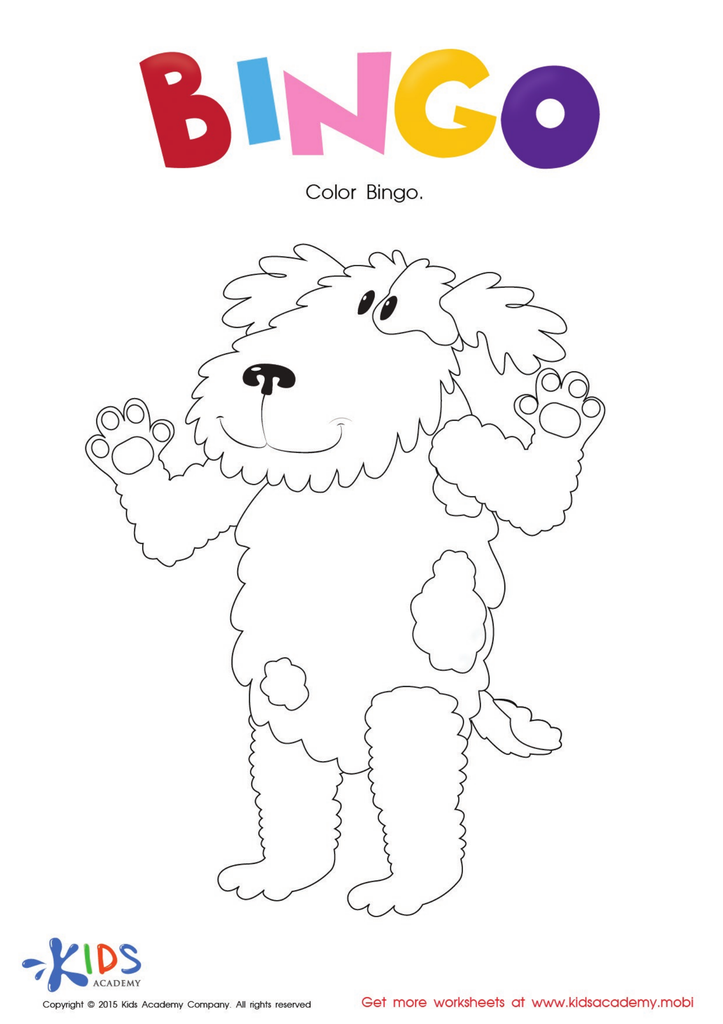

The Bingo Song: Coloring The Dog Worksheet
Nursery rhymes play a crucial role in the developmental stages of children aged 5-7, making them a vital aspect of early education for both parents and teachers. These simple, rhythmic verses not only entertain children but also foster essential literacy skills. The repetitive nature of nursery rhymes helps children develop phonemic awareness, improving their ability to recognize sounds within words, which is foundational for reading proficiency.
Moreover, nursery rhymes enhance vocabulary acquisition and promote language development. Through the colorful language and imaginative themes embedded in these verses, children expand their linguistic skills and engage in imaginative play, making learning enjoyable.
Additionally, nursery rhymes often carry cultural significance, instilling a sense of tradition and community. They offer opportunities for shared experiences between parents, teachers, and children, strengthening relationships and promoting emotional bonding.
The predictable patterns and rhymes also cultivate memory and cognitive skills, aiding in overall brain development. As children recite and respond to these rhymes, they enhance their listening skills and social interactions.
In summary, nursery rhymes are not merely amusing; they are foundational building blocks for literacy, emotional connection, and cognitive development, making them essential for nurturing well-rounded children.


 Assign to My Students
Assign to My Students












